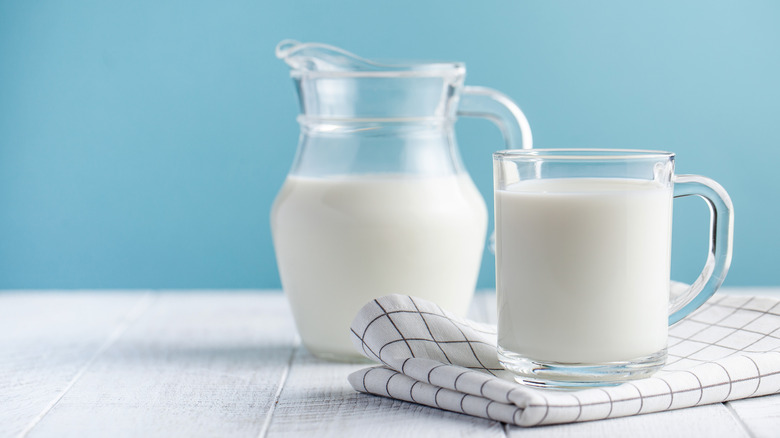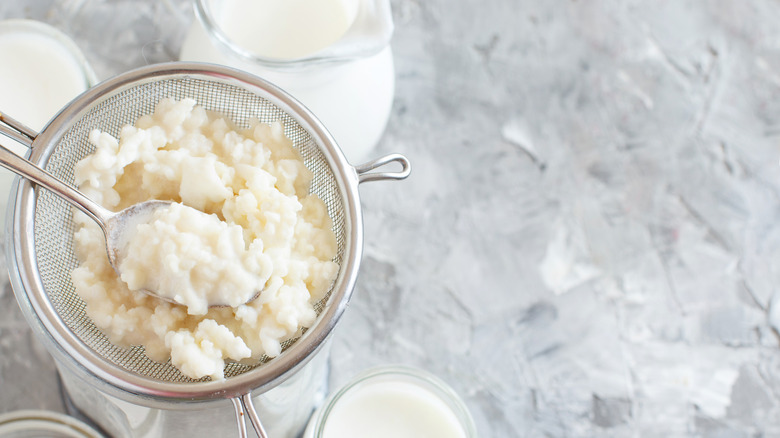How Dairy Affects Your Gut Health
When it comes to gut health, dairy has received some pretty mixed reviews over the years. Although dairy can help boost your digestive system, it can also negatively affect your gut microbiome (via Healthline). That's because most people are unable to digest dairy. While some people have genetically adapted to be able to digest dairy due to the influx of cow's milk during the agricultural revolution, 75% of adults around the world still lack the lactase enzyme needed to break down lactose in the body. This is known as lactose intolerance. People who are lactose intolerant often experience digestive distress after consuming dairy. Common symptoms include bloating, stomach cramps, nausea, vomiting, and diarrhea.
"[The] breakdown of milk (or any food) into its component building blocks allows it to be readily absorbed into our bloodstream," Dr. Dana Hunnes, a senior dietician at UCLA Medical Center and adjunct assistant professor at the Fielding School of Public Health, told Self. "Our bodies do not have to work harder to digest milk than other foods; however, if we lack the lactase enzyme, or have less of it, it becomes harder to break down lactose into more easily absorbable sugars (glucose and galactose)."
Can you still eat dairy if you're lactose intolerant?
However, being lactose intolerant doesn't necessarily mean you have to swear off dairy products. For some people, fermented milk may be the perfect solution (via The Guardian). Fermented milk products like yogurt and kefir are full of probiotics, or live bacteria, which can help aid digestion by stimulating the growth of good bacteria in your gut microbiome. As a result, the presence of probiotic cultures may make it easier to digest and absorb dairy. Fermented milk also contains lower levels of lactose than regular milk, which may make it more easily digestible for those with a lactase deficiency.
Lactose-free milk products are another suitable option for dairy lovers. As the name suggests, lactose-free milk is simply dairy milk without the lactose (via The Spruce Eats). That means that people who are lactose intolerant can drink it without having to worry about experiencing any inconvenient and unpleasant side effects. Aside from milk, there are lactose-free versions of most dairy products, including sour cream, buttermilk, cheese, ice cream, hot chocolate, and heavy cream.


